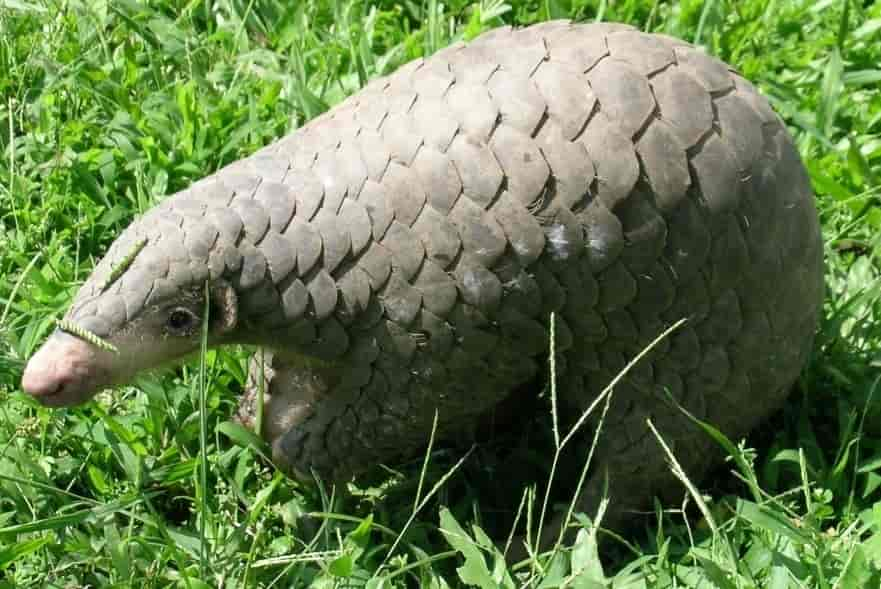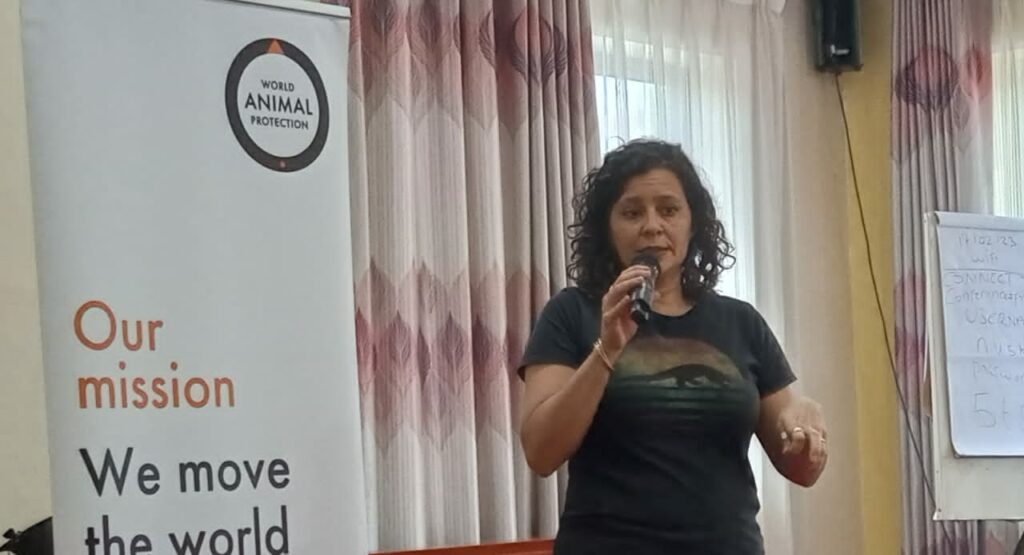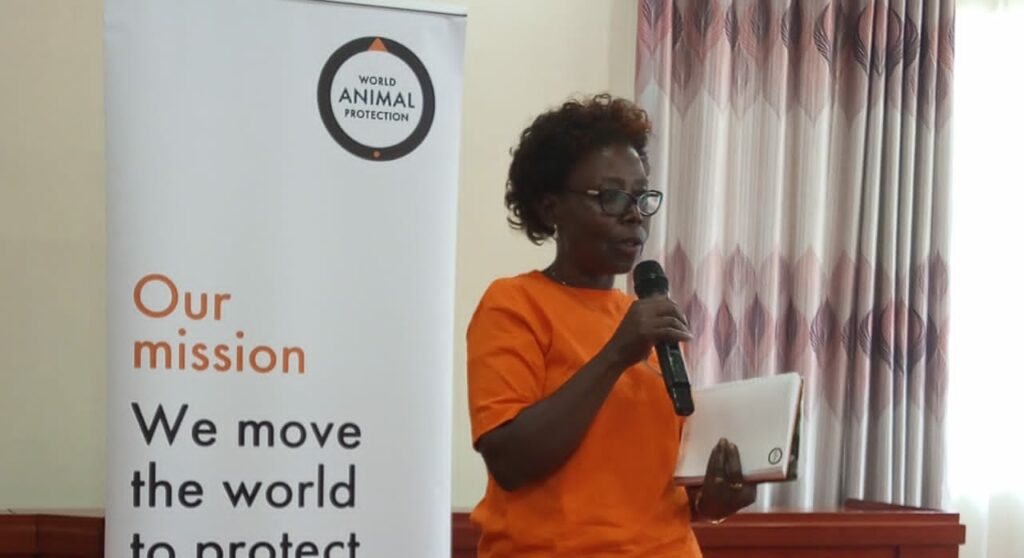
 Mama FM
Mama FM

 Mama FM
Mama FM
18 February 2023, 1:27 pm
Byamukama Alozious > byamukamaalozious1993@gmail.com

Over the years human injustice actions such as illegal hunting and killings against world animals has increased as Pangolins suffer more, between 2017 and 2019 alone, 77 tons of pangolins scales were seized originating from Nigeria. This represents close to 214, 000 pangolins.
Nakitende Magret a 37 year old Muganda of Pangolin clan (olugave) is worried how her children will know about their cultural background because a Pangolin identifies and associates with their line of origin and wants Buganda kingdom and Government of Uganda to join efforts to conserve it

More than one million are believed to have been killed and traded between 2000 and 2013 primarily for traditional Asian medicine and between 2010 – 2015, there were 1,270 reported seizures in 67 countries and territories across the six continents
This involved 120 tons of body parts, whole animals and scales, plus an additional 46,000 individual carcasses, in 2019, Uganda Revenue Authority seized 3.2 tons of elephant ivory and 423 kilograms of pangolin scales with an estimated value of USD $2.3 million and $1.2 million
Katamba Charles a journalist with a local television who also belongs to Pangolin clan in Buganda says, the Pangolins is the most humble animal worse living with the people however hunting and killing has made them disappear.
Some communities believe that Traditional medicine from wildlife is majorly believed to treat impotence and fertility while others believe that it boosts blood circulation, stimulating lactation in nursing mothers, treating skin disorders and wound infections though all these curative claims are not backed by any scientific proof.
Before meeting unjust deaths Pangolins endure unimaginable suffering as they are smoked, dragged out of trees and burrows, beaten to death with clubs and machetes, they are then boiled, sometimes alive for their scales.
World Animal activists want to see Pangolins protected and offenders face the laws, Whereas, the Uganda Wildlife Policy (2014) recognizes wildlife as an important resource for environmental education for people of all ages Pangolins have not been protected even though Wild life Act 2019 orders for the conservation and sustainable management of wildlife by strengthening wildlife conservation.
According to Traffic, a wildlife trade monitoring NGO, pangolins have been heavily targeted for poaching and trafficking in Uganda.
The organization’s data indicates that between 2012 and 2016, over 1,400 pangolins were seized.
Prosecuted cases involving seizures of pangolin scales increased from 7 cases in FY 2018-2019 to 8 cases in 2019-2020 to 10 cases in 2020-2021, according to Uganda Wildlife Authority prosecution reports tracked on the
However, the penalties in the prosecution cases involving pangolins by the Uganda Wildlife Authority from the fiscal year 2018/2019 to 2020/2021 are generally much more lenient.
Penalties in the 44 cases involving pangolins generally ranged from fines between 200,000 UGX to 3,000,000 UGX (USD $56-$838), and between 3 to 24 months in jail. There were just two cases involving jail time longer than one year, one of these mandating imprisonments only if the convicted could not pay the fine.
For example, in a case involving one pangolin carcass in FY 2019/2020 was sentenced to a fine of just 300,000 UGX (USD $84). Another case involving one live pangolin in FY 2020/2021 was sentenced to a fine of 1,000,000 UGX (USD $279). A case in the same year involving 3.62 kilograms of pangolin scales was fined 2,000,000 UGX ($559). Another case involving one live pangolin was sentenced to just 3 months in prison.
While sensitizing Media on Pangolins earlier this year , Rebeca Sandoval the Co-founder Biodiversity Alliance told Journalists to sensitize the communities to learn to live with Pangolins by giving them care and space to live. She adds that Pangolins are good for farmers because Pangolins depend largely on small living organisms in gardens which would instead be destroying garden crops

Edith Kabesiime from World Animal Protection urged Media in Uganda to associative with world Life stories to be able to attract the attention of public and know the importance of living with world animals particularly the Pangolins
Kabesiime adds that despite this level of protection, illegal trade in them is still flourishing facilitated by weak enforcement and corruption in source countries and Countries such as Uganda must address enforcement and governance failures to protect pangolins, Invest promotion of herbal and synthetic medicine than resorting on to world animals

Other Wild Animals trafficked, killed in suffering worldwide; Statistical data view
Source; World Animal Protection
Between 2011 and 2015, 28900 African Grey Parrots were reported in thousands for exotic pet trade. African grey suffered considerably during capture, transport and captivity
In Kenya, lions in the wild are approximately 20,000, across 80000 to 120000. Lions are suffering in captive breeding facilities in South Africa, to be b slaughtered for their bones to be used as traditional medicine; In Asia Lions are often poached using meat poisoned with pesticide as bait. They die unnatural deaths, and the unlucky vultures that feed on them suffer similar fate
A total of 10,028 rhinos were killed in 2017 in South Africa alone, in some cases their bones were hacked while they were still conscious, causing unbreakable suffering
Ball pythons were the most traded live animal, with more than half a million exported between 2011 and 2015 alone, Most are shipped to the USA for life destined in a glass display tank
Nile crocodiles are illegally farmed to be slaughter and skinned for their leather, with an average of over 189,000 skins exported annually between 2011- 2015
Elephants are killed in the wild not only for their ivory but also for their skins, which are used for jackets and car interiors. Due to their size, a humane death isn’t guaranteed, as bullets that miss their mark can result in prolonged and agonizing deaths.
Cape fur seals find themselves at the center of the terrible annual hunt held in Namibia. Thousands of pups are rounded up and grabbed and suffocated to death. Adults are shot or clubbed and sometimes skinned alive, due to demand for wild fur in fashion accessories